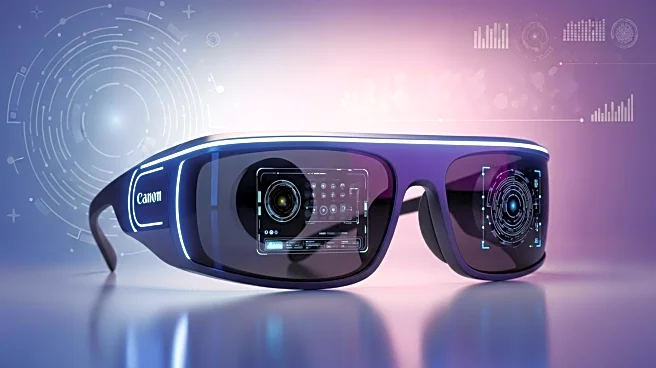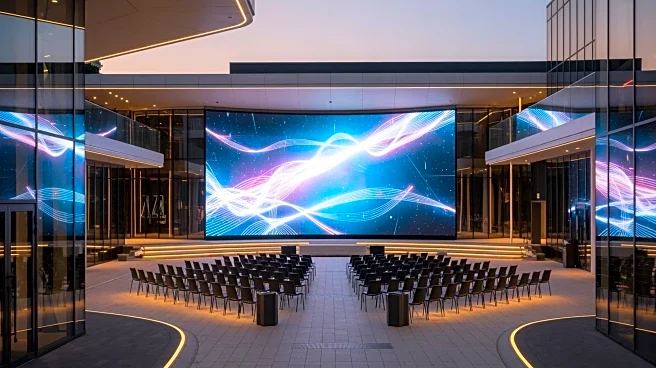What's Happening?
Snap has released Snap OS 2.0, an update aimed at improving the functionality of its AR glasses, known as Spectacles. The update includes enhancements to first-party apps such as Browser, Gallery, and Spotlight, bringing the platform closer to consumer readiness. Currently, Snap Spectacles are available to developers at a subscription cost, with plans for a consumer version in 2026. The Spectacles feature a 46-degree diagonal field of view and limited computing power, but Snap CEO Evan Spiegel promises a lighter, more capable consumer version. Snap OS, which is Android-based, allows developers to create apps using Lens Studio software, focusing on high-level APIs for app development. Recent updates have added features like GPS and compass integration, AI capabilities, and improved positional tracking for travel.
Why It's Important?
The development of Snap OS 2.0 signifies a major step towards making augmented reality technology accessible to consumers. By enhancing the software capabilities and preparing for a consumer launch, Snap is positioning itself as a key player in the AR market. This could have significant implications for industries such as entertainment, gaming, and social media, as AR technology becomes more integrated into everyday life. The advancements in Snap OS could lead to new opportunities for developers and businesses to create innovative AR experiences, potentially transforming how users interact with digital content.
What's Next?
Snap plans to launch the consumer version of Spectacles in 2026, which will feature a smaller form factor and increased capabilities. As Snap continues to refine its AR technology, developers are expected to leverage the new features to create more sophisticated applications. The upcoming consumer launch may prompt reactions from competitors in the AR space, potentially leading to further advancements and collaborations within the industry.
Beyond the Headlines
The evolution of Snap OS and its AR glasses could influence broader cultural and technological shifts. As AR becomes more mainstream, it may alter how people perceive and interact with their environment, raising questions about privacy, data security, and the ethical use of augmented reality. The integration of AI and AR could also lead to new forms of communication and information sharing, impacting social dynamics and digital literacy.










